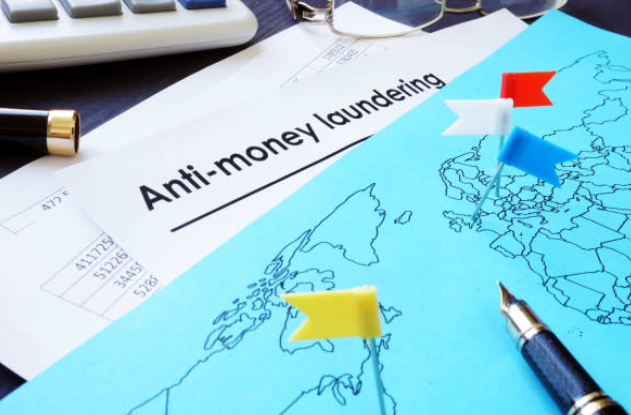Weekly Roundup
Weekly Roundup
European Union Seeking Expansion on AML Scrutiny
The European Commission, the European Union’s (EU) executive branch responsible for proposing and enforcing Euro legislation, has reportedly aimed to expand its scrutiny of member states with potential ties to illicit financial activity. Last Thursday, the EU published an update of its money-laundering blacklist that expanded the grouping to include 22 total states. The dirty-money blacklist now includes the likes of Panama, the Bahamas, Jamaica, Nicaragua and eight others that reportedly pose considerable threats to the Union’s financial system and to regional anti-terror campaigns. Most notably, the list spares Saudi Arabia, Libya and the United States territories of American Samoa, the U.S. Virgin Islands, Puerto Rico and Guam that had been included in a highly-contentious provisional blacklist released in February. The revised list is expected to take effect in October of 2020.
Another recent proposal drafted by the body could see the EU set up “a common supervisory body in charge of carrying out inspections at banks and possibly empowered to impose sanctions and identify suspicious payments”5 by 2023. Should it come to fruition, the supervisory authority is expected to include a financial intelligence unit that the EU believes could play a role in limiting the overall scope of illicit banking scandals seen across the region’s financial sector in recent years, while also aiding the fight against cross-border financial crimes.
U.S. Seeking Multi-Million Dollar Forfeiture Related to Iran Sanctions
The United States Department of Justice (DOJ) recently charged two Iranian citizens with violation of U.S. sanctions and export laws against Iran. The two individuals, Amir Dianat, 55, and Kamran Lajmiri, 42, are alleged to have conspired to provide U.S. financial services to Iranian entities and their front companies attempting to purchase a petroleum tanker known as the Nautic, in September 2019. The two-count criminal complaint filed in U.S. District Court in Washington, D.C. alleges that these individuals used an elaborate web of front companies to purposely conceal from the U.S. government, the seller of the ship, and the multiple financial institutions used to clear the transaction, that the vessel was to be used to facilitate petroleum-centered business with Iran. Federal prosecutors have also filed a civil forfeiture complaint against the men in an effort to reclaim over $12.3 million in laundered funds that were ultimately used to purchase the vessel. A DOJ press release issued on May 1st, 2020 states that the civil forfeiture complaint “alleges that this scheme involved the National Iranian Oil Company, the National Iranian Tanker Company (NITC), and the IRGC-Qods Force (IRGC-QF), all specially designated nationals”3, marking the forfeiture action as the largest ever seizure of IRGC-QF related funds.
Commending the efforts of those who uncovered the illegal ploy, Assistant Attorney General for National Security John C. Demers stated “This is yet another example of Iran brazenly using front companies and false documentation in an attempt to hide the illegal transactions that the Iranian regime desperately needs to fund its malign activities”3, citing the importance of continued national security efforts to thwart activities of this nature. The two men remain at large.
FATF: UAE Can Do Better on Financial Crime
In a recently released anti-money laundering (AML) and counter terrorism financing (CFT) evaluation report, the Financial Action Task Force (FATF) and the North Africa Financial Task Force (MENAFATF) found that while the United Arab Emirates (UAE) has made strides in strengthening its regulatory framework to fight illicit activities of this nature in recent years, the country must now take significant steps to investigate and prosecute those committing these acts. The report stands as a comprehensive review of the effectiveness of the UAE’s measures (including actions taken to address risks posed by terrorist organizations) and their compliance with previous FATF recommendations dating back to the UAE’s last evaluation in 2008.
While the report highlights the fact that the country has strengthened its AML protocols as a whole since then (due in large part to the recent undertaking of a national risk assessment), the Wall Street Journal writes that “the country’s heavy reliance on cash transactions and its highly active trade in precious metals and stones are among the factors that make the U.A.E. susceptible to criminal activity.”2 The country’s position as one of the leaders in the multi-tiered trade of oil and other valuable commodities further supplants these risks. The FATF’s findings show that the UAE’s limited number of money laundering prosecutions and convictions, specifically in Dubai, are a major concern given the country’s high risk profile, indicating that the country has yet to use its new, robust financial intelligence measures to their full capacity in investigating this activity. As such, the FATF has urged the UAE’s leaders to dive deeper into understanding the magnitude of money-laundering risks and to hastily take action to stop the proliferation of financial crime.
Citations
- 26.7 Bank Secrecy Act Penalties: Internal Revenue Service. IRS.
- Broughton, Kristin. “Anti-Money-Laundering Watchdog Urges U.A.E. to Strengthen Enforcement.”The Wall Street Journal, Dow Jones & Company, 30 Apr. 2020.
- “Criminal Charges Filed Against Two Iranian Nationals for Violating Money Laundering & Sanctions Laws by Procuring Petroleum Tanker.”The United States Department of Justice, 1 May 2020.
- “FinCEN Penalizes U.S. Bank Official for Corporate Anti-Money Laundering Failures.” Office of Strategic Communications, Financial Crimes Enforcement Network, 4 Mar. 2020,
- Guarascio, Francesco. “EU to Beef up Scrutiny of Money-Laundering Risks, Adds Panama to List.” Reuters, Thomson Reuters, 5 May 2020.
- “Joint Statement on Risk-Focused Bank Secrecy Act/Anti-Money Laundering Supervision.” Office of the Comptroller of the Currency, 22 July 2019.
“United Arab Emirates’ Measures to Combat Money Laundering and Terrorist Financing.” Financial Action Task Force (FATF), 30 Apr. 2020, www.fatf-gafi.org/publications/mutualevaluations/documents/mer-uae-2020.html.

